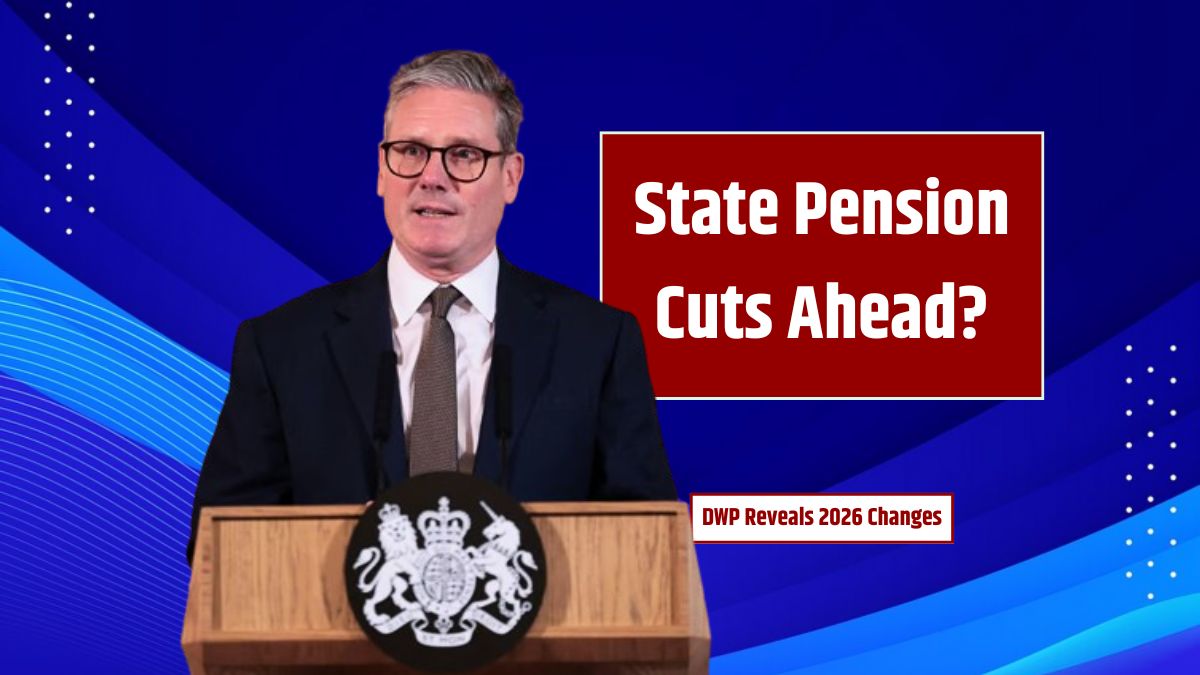Big shifts are coming to the UK’s State Pension system starting in 2026. While the DWP frames these reforms as necessary for long-term sustainability, many pensioners may find their net income taking a hit—even as their pension payments rise. The changes may look subtle on the surface, but when you add them up, the impact on your wallet could be significant. Let’s break it down so you can prepare now, not panic later.
Age
The most talked-about change is the increase in the State Pension age. Starting June 6, 2026, it will rise from 66 to 67 in stages, completing by May 6, 2028. This affects anyone born between June 6, 1960, and June 5, 1977.
If you were planning to retire at 66, this shift could delay your pension by up to a year. That’s a whole year without that steady pension income, which means you’ll need either savings or continued employment to fill the gap.
Tax
Next is the freeze on the personal income tax allowance at £12,570 until 2028. On paper, nothing changes. But in reality, pension income is going up—thanks to the triple lock—while the tax threshold stays stuck.
The full new State Pension will be £11,973 per year by 2025–26. That’s just £597 below the tax-free limit. Throw in any private pension income, part-time work, or savings interest, and suddenly you’re a taxpayer.
| Year | State Pension | Tax-Free Allowance | Taxable Margin |
|---|---|---|---|
| 2025–26 | £11,973 | £12,570 | £597 |
By 2029–30, over 5.5 million pensioners could be paying tax—up from just 1.4 million in 2023.
Fuel
Here’s another major shift: the Winter Fuel Payment will now be means-tested. That means only pensioners receiving Pension Credit or similar low-income benefits will qualify.
Previously, this was a universal benefit. Now, roughly 100,000 pensioners could lose this winter support. Heating a home in winter isn’t cheap, and this change could hit harder than many expect, especially with energy price volatility.
Lock
If there’s one silver lining, it’s the triple lock. This rule ensures pensions rise by the highest of inflation, average wage growth, or 2.5%. In 2025–26, it’ll result in a 4.1% increase.
This bumps up the weekly State Pension to £230.25—equivalent to £11,973 annually. It’s a decent buffer against inflation, but as shown above, it also nudges more pensioners closer to paying tax.
Prepare
Worried about the impact? Here’s what to do now:
1. Check Your State Pension Forecast
Use the “Check your State Pension” tool online to see how much you’ll get, when you’ll get it, and if you need to fill any National Insurance gaps.
2. Get Tax Smart
If your income is nearing £12,570, think about:
- Using ISA investments for tax-free earnings
- Spreading out when you access private pensions
- Reviewing your savings interest to stay under the Personal Savings Allowance
3. Claim Pension Credit
850,000 pensioners still don’t claim it—even though it can be worth over £3,000 a year. Plus, it unlocks:
- Council Tax reductions
- Free NHS dental treatment
- Help with heating costs
4. Budget for Energy Costs
Without automatic Winter Fuel Payments, now’s the time to:
- Compare energy tariffs
- Apply for Warm Home Discount
- Contact your council about energy grants
Tips
Here are a few more ways to stay financially strong:
- Track Inflation: Inflation affects pension rises, so follow the latest CPI numbers.
- Delay Strategically: If you can, waiting to claim your State Pension increases it by about 5.8% for each year you delay.
- Use the Deferral Option: Delaying your pension claim boosts your weekly payments.
- Bridge the Gap: Save up a “bridge fund” to cover expenses for 12–24 months if you reach retirement age before qualifying for your pension.
Planning ahead might not stop the changes, but it will help you manage them. Don’t wait until you’re hit with surprise tax bills or reduced winter support. A few smart steps now can protect your income later.
FAQs
When does State Pension age rise?
From June 6, 2026 to May 6, 2028, rising to age 67.
Will I pay tax on my pension?
If your income exceeds £12,570, you’ll pay tax.
Is Winter Fuel Payment still universal?
No, it will be means-tested from 2026.
What is the triple lock increase?
4.1% increase in 2025–26 based on inflation.
How can I boost my pension income?
Delay claiming or use ISAs to reduce tax exposure.




